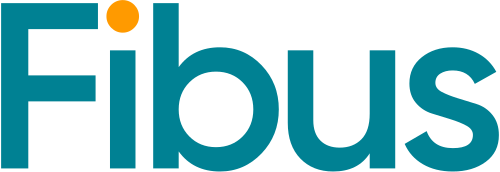Romain Chaufour "Factoring has no impact on a company's debt leverage".
Watch the interview with Romain Chaufour on CFNEWS with Bogdan Kowal
The Fibus Development Director answers the following questions :
▪ What is the relationship between factoring and M&A funds?
▪ What is the advantage of factoring for investment fund holdings?
▪ What is the added value of Fibus?
▪ Is factoring expensive?
The Fibus Development Director answers the following questions :
▪ What is the relationship between factoring and M&A funds?
▪ What is the advantage of factoring for investment fund holdings?
▪ What is the added value of Fibus?
▪ Is factoring expensive?

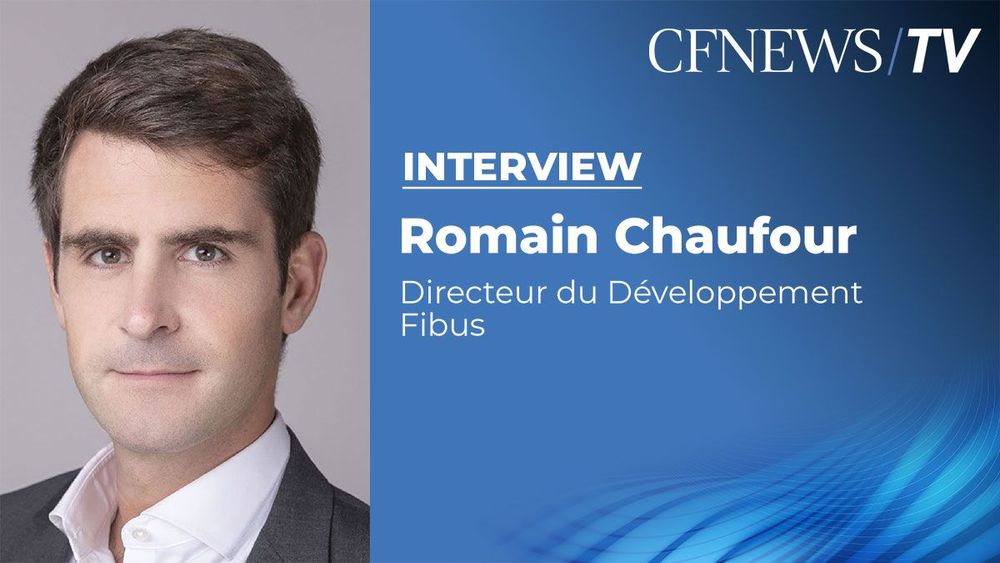
Interview with Romain Chaufour by CFNEWS
Transcript of the interview:
Bogdan Kowal: Hello and thank you for joining us to talk about factoring, with Romain Chaufour, who’s the Business Development Director of Fibus, formerly known as « Chateaudun-Credit ».
Romain Chaufour: Hello Bogdan.
B.K.: Hello Romain. How are you?
R.C.: Very well. And you?
B.K.: So, how excatly is factoring relevant to M&A funds?
R.C.: It’s about growth.
B.K.: Could you explain that in more detail?
R.C.: Factoring is the financing of growth, whether for external or organic growth. Today, for an investment fund, it’s the most efficient way to turn a firm’s account receivable into liquid assets. At Fibus, we’ve been supporting investment funds and LBO-backed firms for 15 years to set up and negotiate factoring lines.
B.K.: But what is the advantage of factoring for investments that funds make?
R.C.: In France, today, the payment period for credit between firms can be up to 60 days, even a little more. Factoring is the way to finance these accounts receivable. It’s the biggest source of short-term financing for a firm. It’s also a source of financing that’s very stable and more reliable than other financing lines you can find among LBO-backed firms, for example RCF (revolving credit facilities). Today, most of our operations are combined with revolving credit facilities, which complements such financing.
B.K.: You explain all this well, but what do you do in concrete terms? Personnally, I still get the impression though it’s probably wrong, that firms use factoring as a last resort, that when a firm’s situation is almost beyond all hope, the firm calls on you rather like phoning the fire brigade.
R.C.: The aim is to consider factoring at the earliest possible stage. At Fibus, we’ve structured our offer so that we’re present and involved at each stage in acquisition process, so before the closing stage. And our main aim in this is to evaluate the financing potential and the cost of the factoring. We aim for implementation that’ll be after the closing stage, but very quickly after it.
B.K.: But can’t the in-house departments implement that quicker? Aren’t they able to do that?
R.C.: Yes, they’re able to implement that quicker. But factoring is a structural form of financing. So the aim is to support and advise the financial team. And we’ve got 15 years’ experience. We’ve got 52 experts available in the Fibus team. And we provide project management and oversee delegation at all stages. I won’t go into the details. But, in short, we negotiate with the banks and we oversee implementation and IT, for example.
B.K.: Could you give an example of this working?
R.C.: Well, this year, we worked for a group owned by an investment fund, so it was an LBO-backed group. This group had developed based on external growth. There were already around 10 entities in the group. And we came to set up a factoring line of 50 million euros, without recourse. There were two aims in this. First, we wanted to be able to provide an extra reserve of cash. It was a cash-rich group, we provided an extra financing line to speed up the external growth strategy. Second, we were able to quickly incorporate the newly acquired entities to increase the financing line. We went from a line of 50 million euros to a line of 80 million euros.
B.K.: And they couldn’t to that on their own ? You mean you’re stronger than them in that field?
R.C.: Of course, there are financial directors who are well experienced in factoring. But we’re there to come and manage one part of the project. So, yes, a good financial director could indeed negotiate a great factoring line. And we’d do a great negotiation with them. That’s because Fibus represents around 10% of the factoring market today. That’s 41 billion euros in financing negotiated for Fibus in 2022. But what we’de provide is our project management expertise. Factoring is a structural form of financing. Factoring isn’t a blank cheque. It isn’t just a blank line of financing. There’s a certain number of project stages, from the moment when we negotiate and get the bank’s definitive approval to the moment when we can press the button to get the initial financing. That’s the added value of the Fibus team.
B.K.: Is it expensive? We often hear that factoring is great, but costly.
R.C.: But what does expensive really mean?
B.K.: Well, expensive means expensive!
R.C.: Today, factoring is actually one of the cheapest possible sources of financing. A factoring line is around 5 to 6 percent.
B.K.: But for a fund, it’s an extra line.
R.C.: Yes, it’s an extra line. But it’s a line that can be taken off the balance sheet. The advantage of factoring…
B.K.: Could you explain that in detail?
R.C.: …is that it doesn’t impact the firm’s debt leverage.
B.K.: That’s makes a big difference!
R.C.: Yes, it makes a huge difference! It helps improve financial statements and it helps avoid prices. It any case, it helps respect covenants agreed upon for debts.
B.K.: And do you think people know about that too?
R.C.: Yes, people do know about that. In fact, it’s one of the keys of factoring’s success. We set up a factoring line, which is an extra line of financing, with a rather simple aim: to secure reimbursement of the acquisition loan and to help speed up growth. And this extra line doesn’t impact the firm’s debt ratio.
B.K.: Yes, but Romain, you’ve not answered my question: is it expensive or not?
R.C.: No. Factoring is not expensive. In fact, it’s one of the cheapest lines of financing. Let me give you a concrete example. A few months ago, we worked to set up a factoring line for an LBO-backed firm in order to help refinance the acquisition loan. The acquisition loan was at 11%. The factoring line we managed to negotiate, which was a line of 15 million euros, was at less than 6%.
B.K.: Thank you very much Romain, for your explanations.
R.C.: You’re welcome. Thank you Bogdan.
Romain Chaufour: Hello Bogdan.
B.K.: Hello Romain. How are you?
R.C.: Very well. And you?
B.K.: So, how excatly is factoring relevant to M&A funds?
R.C.: It’s about growth.
B.K.: Could you explain that in more detail?
R.C.: Factoring is the financing of growth, whether for external or organic growth. Today, for an investment fund, it’s the most efficient way to turn a firm’s account receivable into liquid assets. At Fibus, we’ve been supporting investment funds and LBO-backed firms for 15 years to set up and negotiate factoring lines.
B.K.: But what is the advantage of factoring for investments that funds make?
R.C.: In France, today, the payment period for credit between firms can be up to 60 days, even a little more. Factoring is the way to finance these accounts receivable. It’s the biggest source of short-term financing for a firm. It’s also a source of financing that’s very stable and more reliable than other financing lines you can find among LBO-backed firms, for example RCF (revolving credit facilities). Today, most of our operations are combined with revolving credit facilities, which complements such financing.
B.K.: You explain all this well, but what do you do in concrete terms? Personnally, I still get the impression though it’s probably wrong, that firms use factoring as a last resort, that when a firm’s situation is almost beyond all hope, the firm calls on you rather like phoning the fire brigade.
R.C.: The aim is to consider factoring at the earliest possible stage. At Fibus, we’ve structured our offer so that we’re present and involved at each stage in acquisition process, so before the closing stage. And our main aim in this is to evaluate the financing potential and the cost of the factoring. We aim for implementation that’ll be after the closing stage, but very quickly after it.
B.K.: But can’t the in-house departments implement that quicker? Aren’t they able to do that?
R.C.: Yes, they’re able to implement that quicker. But factoring is a structural form of financing. So the aim is to support and advise the financial team. And we’ve got 15 years’ experience. We’ve got 52 experts available in the Fibus team. And we provide project management and oversee delegation at all stages. I won’t go into the details. But, in short, we negotiate with the banks and we oversee implementation and IT, for example.
B.K.: Could you give an example of this working?
R.C.: Well, this year, we worked for a group owned by an investment fund, so it was an LBO-backed group. This group had developed based on external growth. There were already around 10 entities in the group. And we came to set up a factoring line of 50 million euros, without recourse. There were two aims in this. First, we wanted to be able to provide an extra reserve of cash. It was a cash-rich group, we provided an extra financing line to speed up the external growth strategy. Second, we were able to quickly incorporate the newly acquired entities to increase the financing line. We went from a line of 50 million euros to a line of 80 million euros.
B.K.: And they couldn’t to that on their own ? You mean you’re stronger than them in that field?
R.C.: Of course, there are financial directors who are well experienced in factoring. But we’re there to come and manage one part of the project. So, yes, a good financial director could indeed negotiate a great factoring line. And we’d do a great negotiation with them. That’s because Fibus represents around 10% of the factoring market today. That’s 41 billion euros in financing negotiated for Fibus in 2022. But what we’de provide is our project management expertise. Factoring is a structural form of financing. Factoring isn’t a blank cheque. It isn’t just a blank line of financing. There’s a certain number of project stages, from the moment when we negotiate and get the bank’s definitive approval to the moment when we can press the button to get the initial financing. That’s the added value of the Fibus team.
B.K.: Is it expensive? We often hear that factoring is great, but costly.
R.C.: But what does expensive really mean?
B.K.: Well, expensive means expensive!
R.C.: Today, factoring is actually one of the cheapest possible sources of financing. A factoring line is around 5 to 6 percent.
B.K.: But for a fund, it’s an extra line.
R.C.: Yes, it’s an extra line. But it’s a line that can be taken off the balance sheet. The advantage of factoring…
B.K.: Could you explain that in detail?
R.C.: …is that it doesn’t impact the firm’s debt leverage.
B.K.: That’s makes a big difference!
R.C.: Yes, it makes a huge difference! It helps improve financial statements and it helps avoid prices. It any case, it helps respect covenants agreed upon for debts.
B.K.: And do you think people know about that too?
R.C.: Yes, people do know about that. In fact, it’s one of the keys of factoring’s success. We set up a factoring line, which is an extra line of financing, with a rather simple aim: to secure reimbursement of the acquisition loan and to help speed up growth. And this extra line doesn’t impact the firm’s debt ratio.
B.K.: Yes, but Romain, you’ve not answered my question: is it expensive or not?
R.C.: No. Factoring is not expensive. In fact, it’s one of the cheapest lines of financing. Let me give you a concrete example. A few months ago, we worked to set up a factoring line for an LBO-backed firm in order to help refinance the acquisition loan. The acquisition loan was at 11%. The factoring line we managed to negotiate, which was a line of 15 million euros, was at less than 6%.
B.K.: Thank you very much Romain, for your explanations.
R.C.: You’re welcome. Thank you Bogdan.
These articles may interest you
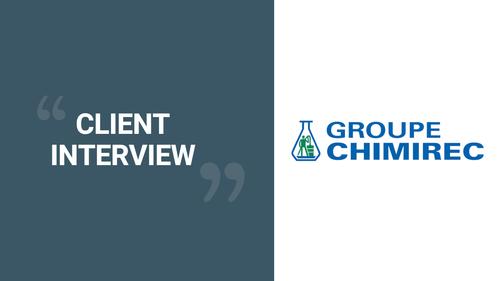
How Chimirec unlocked the full potential of its factoring with ARI Trade, by Fibus Digital
With ARI Trade, the Chimirec Group has reduced the time spent managing its factoring operations from 4 days to 1.5 days per month — representing a total time saving of 30 days per year.
Additional benefits for Chimirec’s CFO include improved working capital, a consolidated view across 15 factoring contracts, and enhanced receivables traceability.
Additional benefits for Chimirec’s CFO include improved working capital, a consolidated view across 15 factoring contracts, and enhanced receivables traceability.
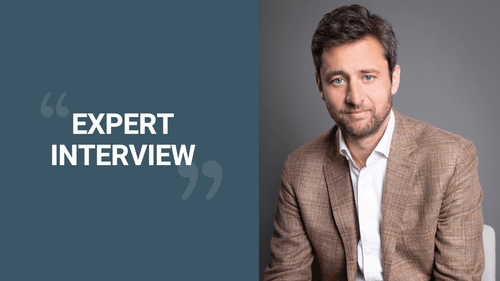
How the Credit Manager safeguards the company’s cash flow
A function at the heart of financial stability The Credit Manager’s role extends far beyond preventing bad debt: today, they act as the true conductor of the order-to-cash process, ensuring the company maintains healthy, predictable, and actively managed cash flow. We
spoke with Thibaut Robet, CEO of Fibus, a firm specialising in order-to-cash management.
spoke with Thibaut Robet, CEO of Fibus, a firm specialising in order-to-cash management.
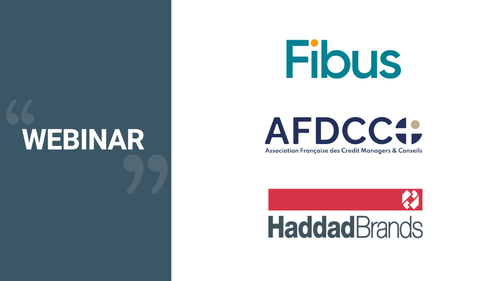
How can credit insurance support growth in a sector under pressure?
Economic difficulties are mounting and weighing more heavily on certain sectors: how can you make the Credit Manager a business partner who supports the company's growth? Discover the testimony of HADDAD BRANDS EUROPE in the webinar hosted by Alexia Monteillet, Credit Risk Manager at HADDAD BRANDS EUROPE, and Marc Chaquès, Credit Insurance Director at Fibus, in partnership with the AFDCC.
Contact us, so that, together, we can find the best solution for financing your accounts receivable.
Write us
